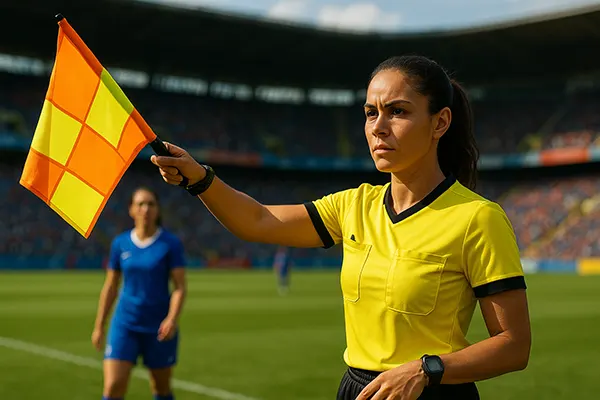By 2025, women referees have become increasingly visible in professional football, breaking long-standing gender barriers. Their journey reflects both inspiring progress and persistent challenges. This article explores their role in modern football, the obstacles they face, and the breakthroughs they have achieved.
Rising Representation in Professional Football
The number of female referees officiating in men’s professional leagues has significantly increased since the early 2020s. Figures like Stéphanie Frappart and Salima Mukansanga have inspired new generations of women to pursue officiating at the highest levels.
National football associations now run specialised training academies aimed at developing female officials. These programmes provide technical education, physical preparation, and mentorship from experienced referees, ensuring that women have access to the same resources as their male counterparts.
Major tournaments, including continental championships and the FIFA Women’s World Cup, now feature women as lead referees in critical matches. This marks a crucial step toward gender parity and greater acceptance of women’s authority on the pitch.
Overcoming Institutional Barriers
Despite progress, women referees continue to encounter institutional barriers. Some football federations remain slow to appoint women to top-tier matches, citing outdated concerns over physical demands and perceived pressure in men’s competitions.
In addition, the pathway to elite officiating roles often lacks transparency, making it harder for female officials to navigate the system. Many have called for clearer promotion criteria and equal evaluation standards to ensure fair career development.
Efforts are underway to reform these structures. UEFA and FIFA have launched gender equity policies that require national associations to include a minimum percentage of women in refereeing talent pools by 2030.
Addressing Gender Bias and Cultural Challenges
Gender bias remains a significant obstacle. Female referees often face scepticism from players, managers, and even fans, who question their authority on the field. This prejudice creates additional psychological pressure during matches.
Social media has amplified this challenge. Women referees frequently receive online harassment, which can discourage talented newcomers from pursuing officiating roles. Several football bodies have introduced support programmes to combat abuse and protect referees’ mental health.
Positive change is visible as players and managers increasingly defend female officials against discriminatory behaviour. Public support from high-profile male players has helped shift public perception and promote respect for women referees.
Empowering the Next Generation
To create lasting change, youth development initiatives have become crucial. Grassroots programmes in Europe, Africa, and South America actively recruit teenage girls interested in officiating and provide them with early match experience.
Role models play a central role in this transformation. Seeing women officiate high-stakes matches encourages young athletes to consider refereeing as a serious career path. This visibility is reshaping the cultural narrative around women’s place in football.
By 2025, these programmes are producing their first cohorts of fully licensed female referees, signalling a promising future for gender diversity in the sport’s officiating ranks.

Technological and Structural Support
The adoption of new refereeing technologies has indirectly benefited women officials by levelling the playing field. Tools like VAR and goal-line technology reduce reliance on subjective judgements, allowing referees to demonstrate competence more transparently.
Fitness and performance monitoring systems also ensure that all referees—regardless of gender—meet identical physical standards. This data-driven approach counters stereotypes about women’s physical capability to manage top-flight matches.
National federations are investing in scholarship schemes, travel stipends, and maternity support policies to remove logistical barriers that disproportionately affect women in the profession.
Shaping a More Inclusive Future
Women referees are reshaping football culture by proving that competence is not defined by gender. Their success challenges outdated stereotypes and contributes to a more inclusive image of the sport.
Collaborative campaigns between men’s and women’s leagues now celebrate the achievements of female officials, showcasing their skills and normalising their presence at every level of the game.
If current trends continue, the next decade may see near-equal gender representation among elite referees, transforming football into a more equitable sport both on and off the pitch.
